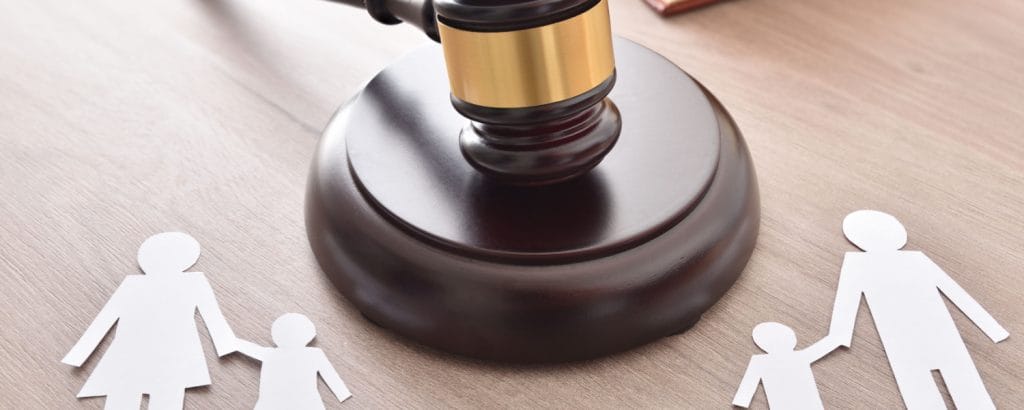Child support is a crucial aspect of ensuring the well-being of children whose parents are separated or divorced. The primary purpose of child support is to provide financial assistance for the child’s upbringing, including expenses like education, healthcare, and daily living costs. However, sometimes payments are missed over time, and sometimes parents ask “can you sue for back child support after 18 in Illinois?” In this article, we will explore the possibilities and limitations of pursuing back child support once the child has reached adulthood.

Understanding Child Support Laws
Before delving into the question of suing for back child support after a child turns 18, it’s essential to have a solid understanding of child support laws. Child support laws vary by jurisdiction, but they typically have common elements. Child support is usually paid by the non-custodial parent (the parent with less parenting time) to the custodial parent or guardian (the parent that lives with the child most of the time) to ensure the child’s financial needs are met.
These payments continue until the child reaches the age of majority, which is often 18 but can vary depending on the state or country. To learn more about how child support works, check out our article titled “How Does Child Support Work If the Mother Has No Job?”
Missed payments are typically called back child support. There are circumstances where a parent may want to sue the other parent if they are behind on child support payments. Keep reading to learn when it is appropriate to sue for back child support after 18 in Illinois.
The Legal Framework
In most jurisdictions, child support obligations automatically terminate when the child reaches the age of majority. This means that once your child turns 18, you can no longer demand ongoing child support payments. However, this does not necessarily mean that you are entirely out of options if you believe there are unpaid child support obligations from the past.
To learn more about how child support is calculated in Illinois, check out the Illinois Child Support Estimator. Here you can input your information and see an estimation of your child support paymetns given your income and parenting time.

Suing for Back Child Support
The ability to sue for back child support after a child turns 18 is typically subject to several factors, including the laws in your jurisdiction, the circumstances surrounding the unpaid support, and any existing agreements or court orders. Here are some scenarios in which you may be able to pursue back child support:
- Unpaid Child Support Arrears: If the non-custodial parent has accumulated unpaid child support they will be considered in “arrears.” If the non-custodial parent is in arrears during the child’s minority, you may have the legal right to seek enforcement of those arrears after the child reaches 18. This means you can take legal action to collect the past-due support payments that were never paid. This could mean placing garnishments on bank accounts or wages of the spouse in arrears. To learn more check out our article titled “Is It Illegal to Hide a Bank Account from Child Support?“
- Existing Court Orders: If there is a court order for child support that was issued before the child turned 18 and the non-custodial parent failed to comply with the order, you may be able to pursue legal action to enforce the order and collect any unpaid support. There should always be a court order for child support if your divorce agreement had an agreement for child support, or if there was a modification to the order that allowed for child support. If there was no order then you may not be entitled to any support.
- Agreements or Consent Orders: In some cases, parents may have made agreements or consent orders for child support that extend beyond the child’s 18th birthday. If such an agreement exists and is legally binding, you can enforce it even after the child has reached adulthood.
- College Expenses or Special Circumstances: Some jurisdictions allow for the continuation of child support payments past the age of majority in specific circumstances. For example, if the child is attending college or has a disability that requires ongoing support, you may be able to seek extended child support.
- Paternity Issues: If there are questions about the paternity of the child or if the non-custodial parent has not been established as the legal parent, you may have the option to pursue a paternity suit and subsequently request child support payments. Doing this after the child has reached the majority age may be impossible but you can always talk to a qualified family law attorney in your area to determine if you can still request back child support.
Statute of Limitations
It’s essential to note that pursuing back child support after a child turns 18 may be subject to limitations and statutes of limitations in your jurisdiction. Statutes of limitations set a time limit on when you can initiate legal action for any situation. Statutes of limitations are specific per situation, so the time limit will not be the same for a murder case as it is for child support. Therefore, it’s crucial to consult with an experienced family law attorney who can assess your specific case and advise you on the applicable laws and limitations in your jurisdiction.

Should You Sue for Back Child Support?
While you may be entitled to back child support, it may not always be lucrative to sue for it. If you know the non-custodial parent doesn’t have the funds to pay a large sum, then you may be wasting your money on an attorney to get nothing, or very little, in back child support. Often when someone struggles to pay before the child is 18, then they will still struggle to pay after. This is especially true if you have already taken steps with the court to ensure payment while raising your child.
There are many consequences for not paying child support payments. Courts have the authority to put garnishments on wages, bank accounts, take property, or give jail time to people that do not pay what they owe. According to the census bureau, however, the 5.4 million parents who were owed child support payments in 2017 received, on average, 62% of the amount they were supposed to get. In a perfect world that number would be 100% but that does not happen often.
If you have already tried to get wage garnishments, or other solutions to get child support, you wil probably be unsuccessful attempting these solutions again after the child has reached 18. If you are financially stable and are not in need of the back child support payments, you may not want to sue for back child support.
For more information regarding the consequences of non-payment of child support, check out “How Many Child Support Payments Can You Miss Before Jail Time?”
Conclusion: Can You Sue for Back Child Support After 18 in Illinois?
While child support obligations typically end when a child reaches the age of majority, there are situations where you may be able to sue for back child support after your child turns 18. These situations often involve unpaid child support arrears, existing court orders, agreements or consent orders, special circumstances, or paternity issues. However, it’s crucial to consult with a qualified family law attorney to assess the viability of your case and understand the laws and limitations in your jurisdiction. Child support matters can be complex, and legal guidance is essential to protect your rights and the well-being of your child.
MEET WITH AN ILLINOIS FAMILY LAW ATTORNEY TODAY
The Family Law attorneys at Koth Gregory & Nieminski understand that your family is the top priority, which is why we offer SAME-DAY APPOINTMENTS. If you need a divorce or other family law services, you can schedule your first meeting through our online appointment calendar. We look forward to meeting you.
Disclaimer: This article (Can You Sue for Back Child Support After 18 in Illinois?) may contain information that is outdated as Illinois law continuously evolves. Meeting with an experienced family law attorney is the best way to ensure you are receiving the most current information to answer the question Can You Sue for Back Child Support After 18 in Illinois?

Published by Dustin Koth on March 4, 2024

